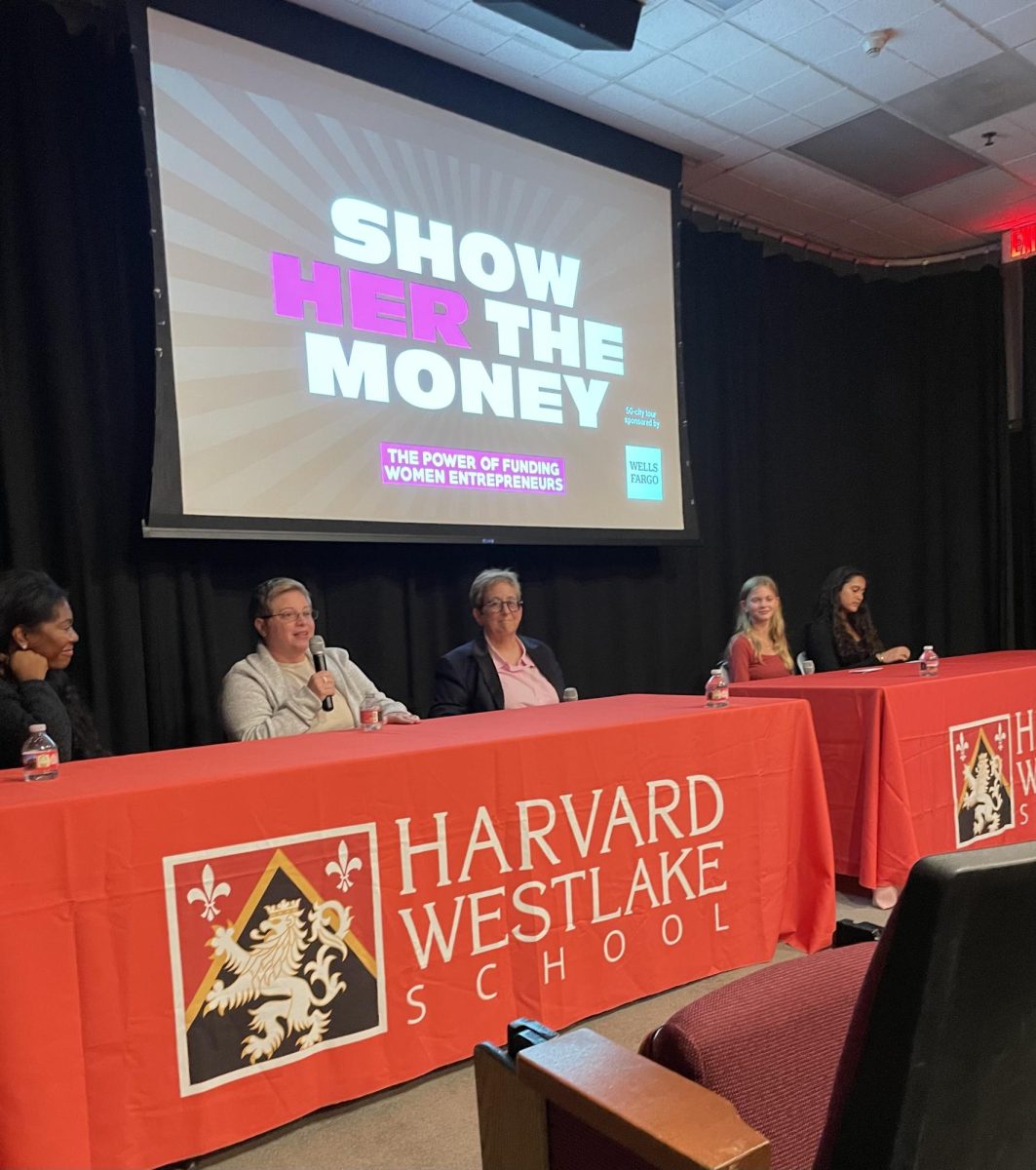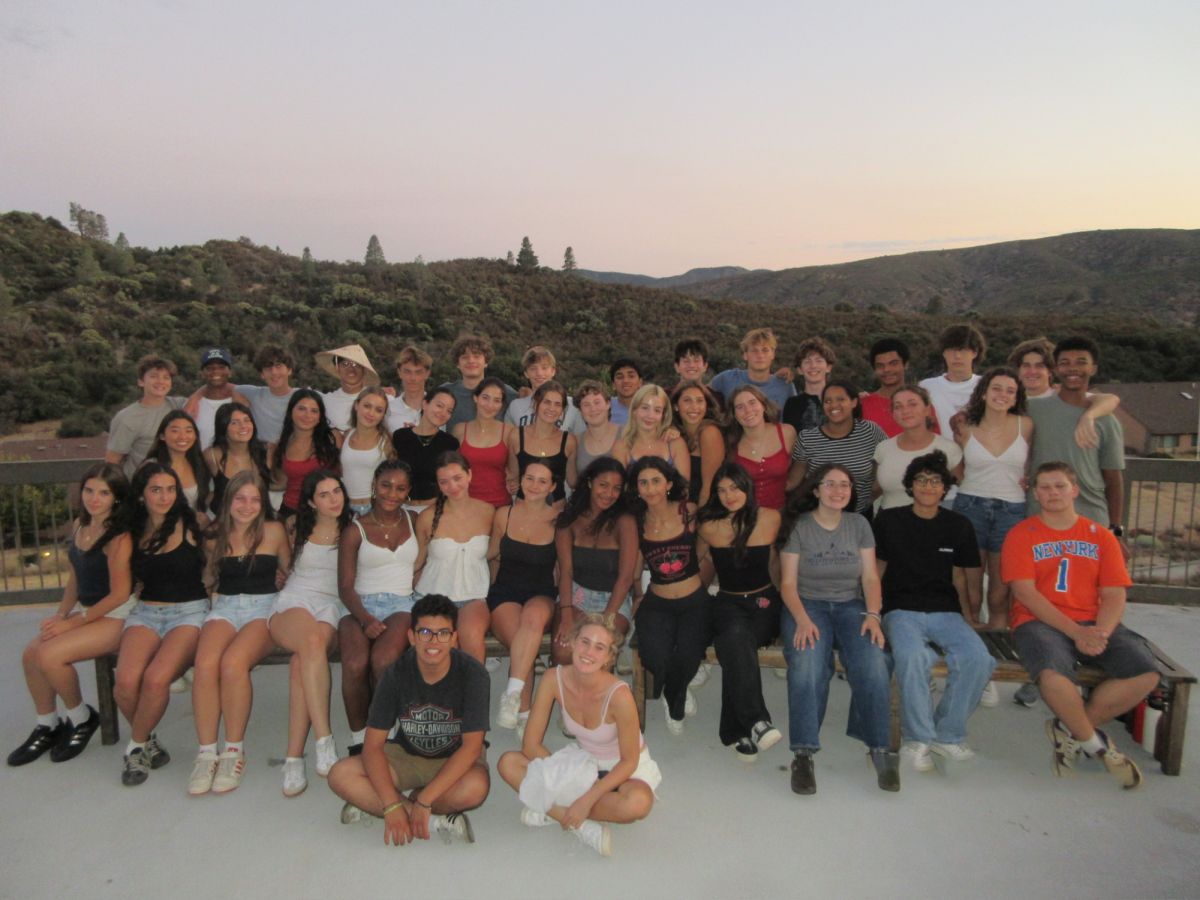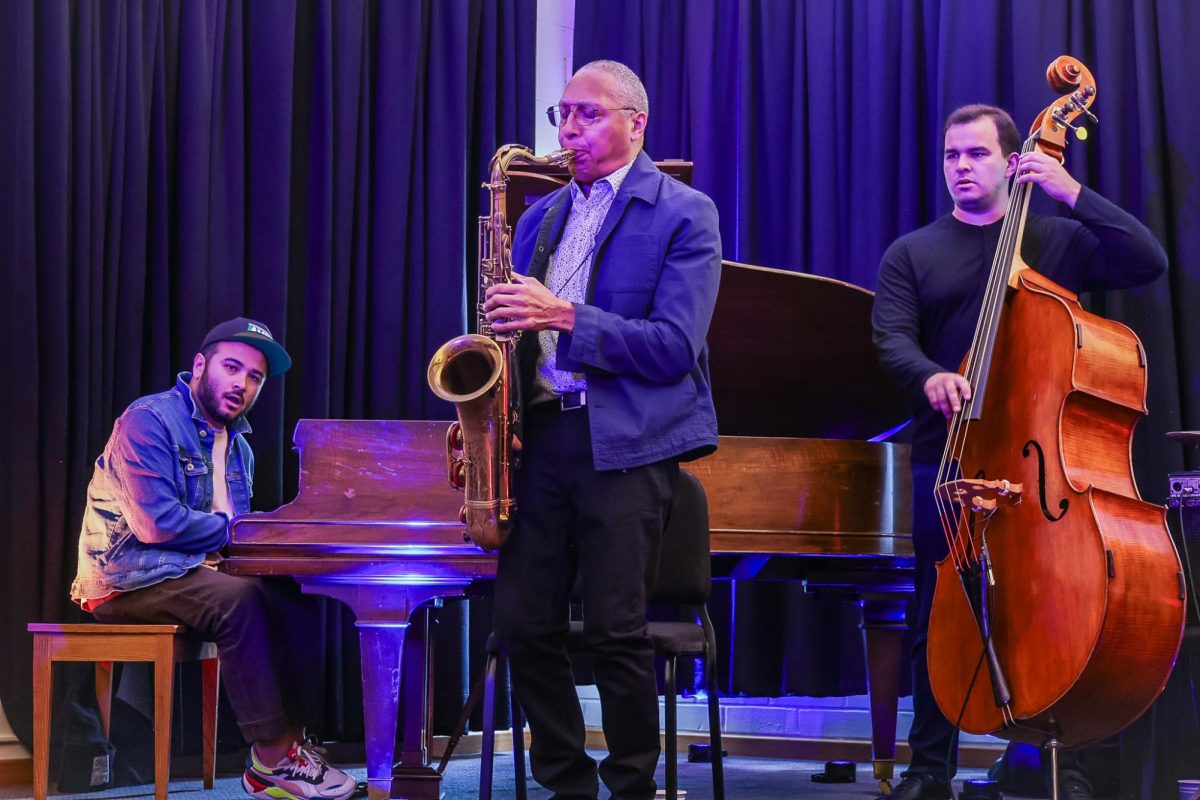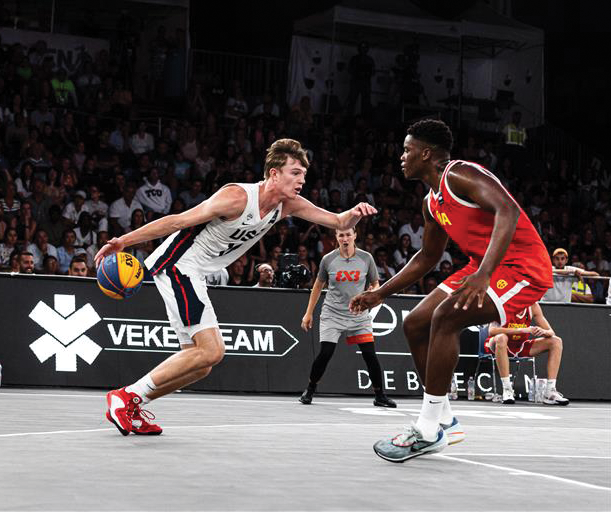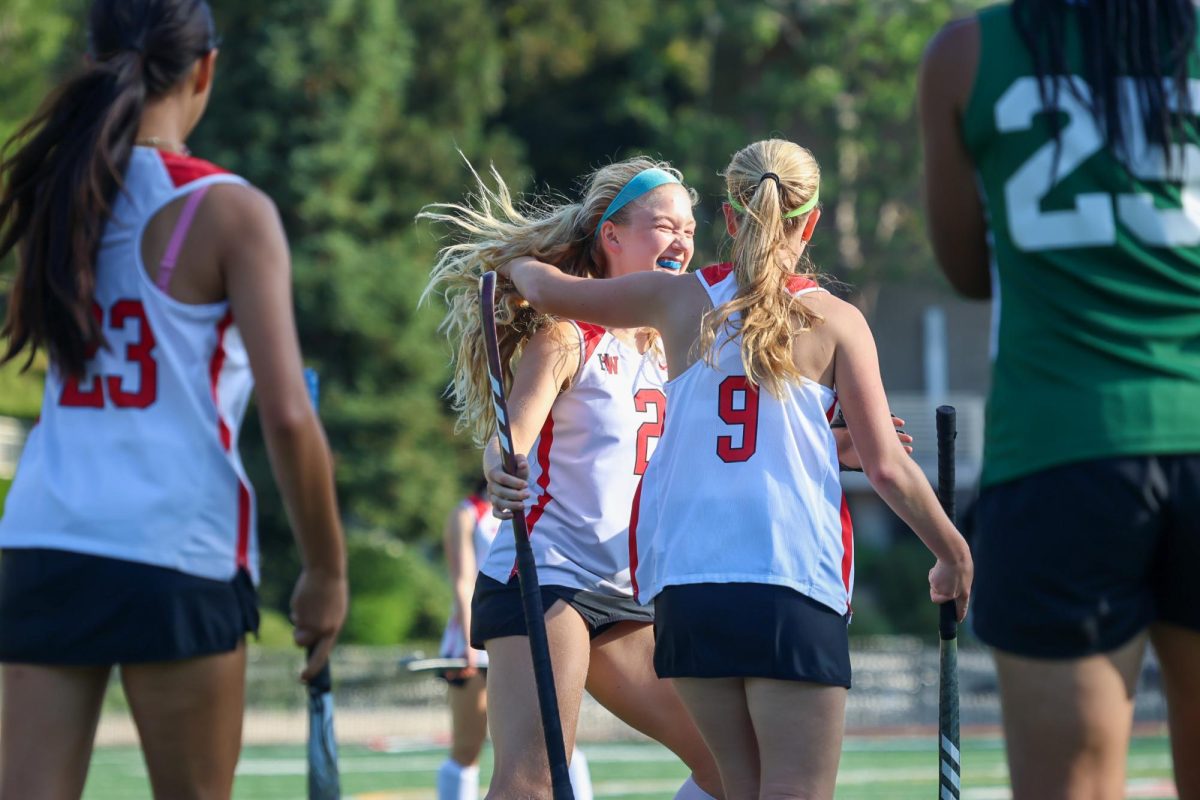Dressed in a classic, crisp tuxedo, world-renowned conductor Gustavo Dudamel stepped onto the stage at Walt Disney Concert Hall to conduct the Los Angeles Philharmonic in the second installment of the Mozart/Da Ponte Trilogy “The Marriage of Figaro,” on the evening of May 23. Earlier that same day, he opted for a black t-shirt and jeans when he entered Taper Gymnasium to conduct the combined Harvard-Westlake Orchestra through Beethoven’s 1st Symphony at an all-school assembly.
Seated next to Linda Brown (Russell ’94, David ’96), who sponsored the open master class, Dudamel was introduced by President Thomas C. Hudnut and members of the Latino Club. Maria Gonzalez ‘13, on behalf of the Latino Club, had approached Hudnut with the idea to invite Dudamel, a family friend, as the Brown Family Speaker.
“We have had some amazing speakers,” Hudnut said, “none of them any more interesting than the one we have today. This is the hottest musician on the planet.”
Dudamel, with his signature mop of curly hair gelled back, taught an open class for the third time in his career. He shook the hand of Concert Master Sydney Cheong ’14, removed his gray linen jacket and took a bow. Despite conducting this particular symphony only once before in Hamburg, Germany, he needed no sheet music in front of him.
“When I was 11 years old I studied this piece,” Dudamel said. “I stole it from the archives of the orchestra because I am obsessed.”
With a wave of his conductor’s baton, the orchestra played the piece all the way through.
“Wonderful, wonderful,” he said, but the orchestra would not get off that easily.
“There are so many details we need to understand before we play,” Dudamel said.
When they set off for the second time, Dudamel stopped them after only the first note.
“This is not an affirmative,” Dudamel said. “It is not like yes, but like how. There is more intensity when you ask a question than when you answer it.”
Throughout his class, Dudamel would often describe the notes in an unexpected way.
“By explaining it differently he made it so much more organic so that the feeling actually came from the musician,” Cheong said. “Because he has everything memorized he can make eye contact and really draw out the emotion and depth of the piece.”
As he singled out the string section he said “not only Madonna sings, violinists must sing” and he hummed out their part for them.
“It is like when you sing in the bathroom and there is this beautiful echo and you are the best singer in the world,” he said.
As the symphony progressed it took many different tones. During a part of high intensity Dudamel said that it should be played as if the musicians were “swimming in a pool, but a pool full of honey.”
Later, when the piece became much lighter, Dudamel told singers to “enjoy the party. It is mysterious, but at the same time very funny.”
When the piece got darker again he told students “I would love to be your father. You are really well educated. Now yell at me!”
Dudamel said that the deeper meaning behind each note is what makes classical music an interesting and intriguing art form. He said that Beethoven’s works in particular are difficult to play because of its intricacy.
“It’s like having a baby for the first time,” Dudamel said. “You touch it and it cries and you don’t know what to do.”
His occasional grunts and comments of “no, no, no,” “too early” and “breath,” culminated in a final “beautiful” when he was satisfied.
He then took a seat to answer student questions where he explained his roots conducting a children’s orchestra in his home country of Venezuela. Dudamel has always made children education a focus of his career, establishing youth orchestra groups around the world to “try to change their lives through music.”
Ultimately, Dudamel made sure to emphasize the value of classical music, which he said often goes unappreciated in youth culture.
“Classical music is not boring,” he said. “It is the responsibility of the musician to bring out the feeling in every note.”

